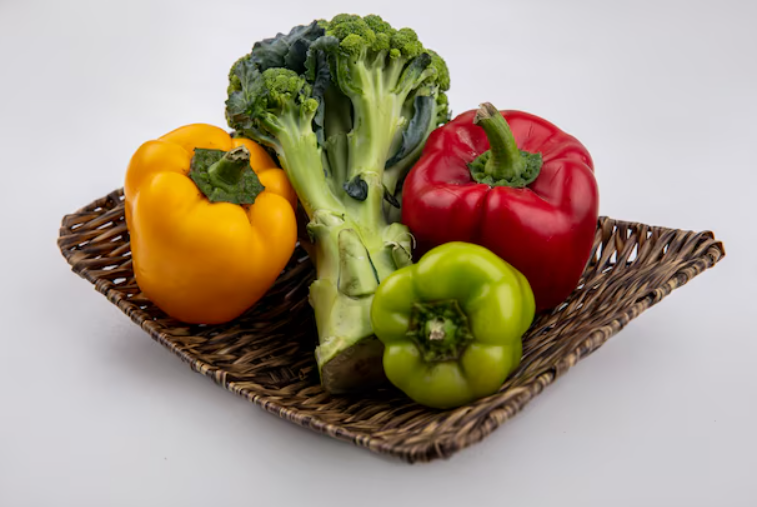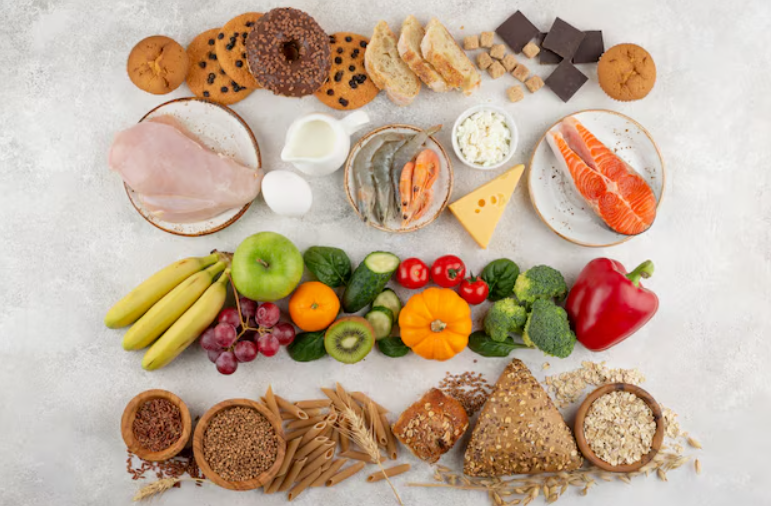Organic Living: Creating a More Natural Lifestyle
Living organically is an easy and fulfilling way to make your everyday life more natural. Begin by include organic foods in your meals and then progressively swap out common home goods like cleaning supplies and personal hygiene items with natural, environmentally friendly substitutes. Additionally, you may plant your own organic garden, wear eco-friendly clothes, and recycle and compost to cut down on waste. Living an organic lifestyle involves more than simply eating well; it also involves making thoughtful decisions that benefit the environment and your health.
Why Opt for Organic? Examining the Health and Environmental Advantages
Selecting organic goods has many advantages for the environment and human health. Because organic farming doesn’t use artificial fertilisers and pesticides, the food is cleaner and produces less pollution. Choosing organic contributes to resource conservation and a smaller carbon impact. From food to apparel, organic items are produced using sustainable practices that encourage environmental responsibility and cut down on waste. In terms of health, eating organic food lowers your exposure to dangerous toxins since it is nutrient-dense and chemical-free.
Easy Steps to Make the Switch to an Organic Lifestyle
Making the switch to an organic way of living may be simple and gradual. Start by include more organic fruits, vegetables, and grains in your diet. Replace traditional cleaning supplies with environmentally friendly ones, and choose personal care products devoid of artificial chemicals. To raise your own vegetables without the use of pesticides, you may also start gardening organically. You may learn to adapt without feeling overburdened by gradually substituting organic items with non-organic ones in your everyday routine.
Organic Life: An Ecological Strategy for a Better Future
A healthy future is something you can invest in by switching to an organic lifestyle. You may help preserve natural resources by emphasising sustainable behaviours like using eco-friendly items, eating organic food, and cutting down on trash. In addition to improving the environment, organic farming yields food that promotes improved health. Adhering to an organic lifestyle helps preserve ecosystems, lessen environmental harm, and leave a cleaner, greener world for next generations.
The Best Arguments for Living an Organic Lifestyle for a Healthier Future
Among the many important advantages of leading an organic lifestyle are better food choices, more environmental sustainability, and higher general wellbeing. You may reduce your exposure to dangerous chemicals by selecting organic, which may enhance your health in the long run. Additionally, eco-friendly behaviours that support healthier soil, water, and air are encouraged by organic living. Furthermore, the demand for sustainable goods rises as more people adopt organic lifestyles, making the earth healthier for future generations.
Organic Living: Creating a More Natural Lifestyle
Living organically is an easy and fulfilling way to make your everyday life more natural. Begin by include organic foods in your meals and then progressively swap out common home goods like cleaning supplies and personal hygiene items with natural, environmentally friendly substitutes. Additionally, you may plant your own organic garden, wear eco-friendly clothes, and recycle and compost to cut down on waste. Living an organic lifestyle involves more than simply eating well; it also involves making thoughtful decisions that benefit the environment and your health.

The Prospects of Sustainable Living and Organic Life
As more individuals understand the value of natural goods and eco-friendly lives, the future of organic living and sustainable practices is bright. Fighting climate change, preserving resources, and fostering biodiversity all depend on organic farming and sustainable living. Industry adoption of sustainable practices, such as eco-friendly manufacturing methods and organic farming, is accelerating due to rising customer demand. We can guarantee a better, more sustainable future for the earth and future generations if we keep organic living as our top priority.
Why Does Organic Living Matter and What Is It?
Organic living is a way of life that emphasises sustainability and health by using natural, non-toxic materials and methods. It entails minimising waste, using eco-friendly home items, and selecting organic meals. Living organically is important because it lowers exposure to dangerous chemicals, supports environmental sustainability, and enhances general wellbeing. Making environmentally friendly decisions guarantees a healthy planet and way of life.
The Advantages of Organic Products for the Environment
Selecting organic goods has major advantages for the environment. The goals of organic farming are to maintain soil health, reduce water pollution, and increase biodiversity. Because organic crops don’t use artificial fertilisers or pesticides, they reduce chemical runoff and contribute to the preservation of nearby ecosystems. Customers may help preserve natural resources and lessen their environmental impact by purchasing organic products, which promotes a cleaner, more sustainable world.
The Health and Immunity Benefits of Eating Organic Foods
Because they are nutrient-dense and devoid of dangerous pesticides, hormones, and chemicals, organic foods may contribute to better general health. Vitamins, minerals, and antioxidants found in organic vegetables are often higher, strengthening your body’s defences against disease. Furthermore, there is a lower likelihood of harmful chemicals that might alter hormone levels and cause long-term health problems in organic foods. You may improve your health and strengthen your immune system by eating more organic foods.
Guides for Making the Switch to an Organic Lifestyle
Making the switch to an organic lifestyle doesn’t have to be too difficult. Start with little adjustments, like moving to organic fruit or substituting eco-friendly products for dangerous chemicals in your household. Focus on sustainable practices like resource conservation and waste reduction as you gradually include organic items into your everyday routine. Embracing a more natural lifestyle may also be achieved by cultivating your own organic garden and shopping at local farmers’ markets. These adjustments will eventually lead to a cleaner environment and improved health.
Organic Gardening: How to Produce Food Without Chemicals
Growing your own food without the use of chemicals and supporting a more sustainable way of living may be accomplished via organic gardening. Start by selecting organic seeds and feeding your plants with natural fertilisers like manure or compost. Use natural pest control techniques, such as beneficial insects and companion planting, instead of synthetic pesticides. In addition to producing fresh, healthful food, organic gardening helps the environment by lowering chemical usage and fostering biodiversity. It’s a fulfilling way to savour healthier, locally farmed food and establish a connection with nature.
The Benefits of Organic Living for a More Sustainable Earth
Because organic living lessens the harm caused by conventional farming and consumption, it promotes a more sustainable earth. Using organic farming methods lowers the carbon footprint of food production, conserves water, and maintains the health of the land. Customers may lessen their exposure to dangerous chemicals and support biodiversity by selecting organic items. Furthermore, adopting an organic lifestyle promotes the usage of environmentally friendly goods, which lowers waste and supports environmentally friendly production methods.
Comprehending the Advantages of Organic Agriculture
There are several advantages to organic farming for the environment and human health. Organic farming methods help maintain soil fertility, stop water pollution, and increase biodiversity by eschewing the use of synthetic pesticides, fertilisers, and genetically modified organisms. In order to maintain the long-term health of the environment, organic farms also prioritise crop rotation and sustainable techniques. Organic food is often higher in nutrients and lower in dangerous toxins, making it a better option for both the environment and customers.
How Organic Living Can Help Prevent Chronic Illness
By lowering exposure to dangerous chemicals and poisons included in traditional items, organic living helps avoid chronic sickness. Synthetic pesticides, hormones, and chemicals, which may exacerbate long-term illnesses like diabetes, cancer, and heart disease, are absent from organic foods. People may strengthen their immune systems, lower inflammation, and enhance their general health by selecting organic products. Living an organic lifestyle reduces the chance of long-term health issues and contributes to a cleaner, healthier environment.
Simple Organic Changes to Improve Your Everyday Routine
One simple strategy to adopt a better lifestyle is to include organic substitutions into your everyday routine. Start by selecting organic dairy products, moving to organic fruits and vegetables, and substituting eco-friendly cleaning products for traditional ones. Additionally, you may utilise natural materials for clothes, experiment with organic skincare items, and use reusable containers to cut down on plastic waste. You may greatly enhance your health and promote environmentally friendly, sustainable behaviours by gradually implementing these adjustments in your everyday routine.

The Significance of Selecting Organic Skincare Products
Maintaining healthy, glowing skin requires using organic skincare products. Synthetic chemicals, parabens, and artificial perfumes are often included in conventional skincare products, which may irritate skin and harm it over time. Natural, non-toxic substances included in organic skincare products protect and nourish the skin without exposing it to dangerous chemicals. You can promote the natural health of your skin and lower your risk of irritation, allergies, and early ageing by utilising organic products.
Green Methods for Sustainable Design and Organic Living
Sustainable design and organic living are centred on eco-friendly methods. Organic living promotes decisions that have the least negative effects on the environment, from employing renewable resources to cutting waste. The goal of sustainable design is to create environments that encourage the use of non-toxic materials, water conservation, and energy efficiency. People may help build environments that are sustainable and useful, lower their carbon footprint, and promote a healthier environment by using eco-friendly habits. This will improve everyone’s future.
The Benefits of Organic Living for a Longer, Healthier Life
By improving physical health and lowering exposure to dangerous substances, organic living may help people live longer, healthier lives. Synthetic fertilisers and pesticides, which may have negative long-term health impacts, are absent from organic foods. A balanced lifestyle with sustainable activities that put the environment and individual health first is also promoted by organic living. People may live longer, healthier lives by embracing an organic lifestyle, which will also boost their energy levels and lower their chance of developing chronic diseases.
Creating an Eco-Friendly Lifestyle on a Budget
With a little preparation and wise decisions, it is feasible to create an organic lifestyle on a budget. Start by buying organic foods such fruits, vegetables, and grains that are most vital to your health. You may cultivate your own organic fruit at home and save money by purchasing in bulk. To save money, look for bargains, visit farmers’ markets, and choose organic products that are in season. Additionally, you may live an organic lifestyle without going over budget by minimising single-use plastics and reusing containers to save waste.
A Guide to Identifying and Selecting the Best Organic Products for Your Home
It takes some study to find the finest organic items for your house, and you should be careful about the brands you choose. To be sure the items fulfil organic requirements, look for certificates such as USDA Organic or Fair Trade. Choose minimally processed goods and give priority to entire foods like fresh fruits and vegetables while you’re shopping for organic food. When choosing home and personal care products, look for natural components rather than ones with dangerous chemicals or artificial smells. Another excellent strategy to increase accessibility to organic living is to support eco-friendly products and shop locally.
The Association Between Mental Health and Organic Foods
The lack of dangerous chemicals present in conventional goods is the link between eating organic food and mental health. The absence of pesticides, chemicals, and genetically modified organisms in organic meals may have a detrimental effect on brain health. Eating organic food provides your body with nutrient-dense alternatives that regulate mood, lower inflammation, and boost cognitive function. Emotional well-being, stress reduction, and mental clarity may all be enhanced by an organic diet that is high in vital vitamins and antioxidants.
